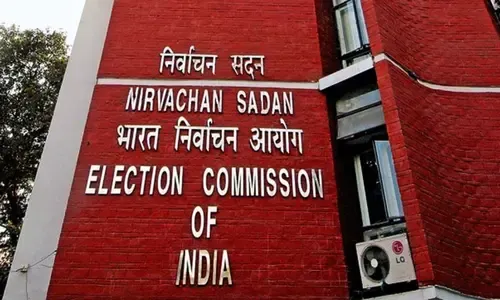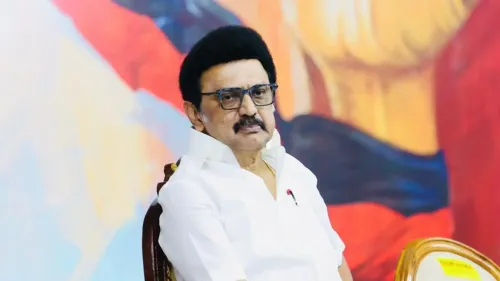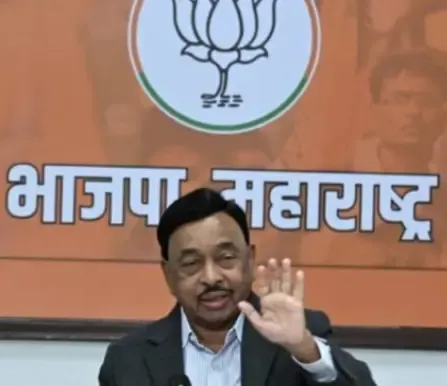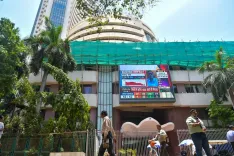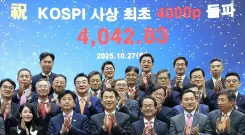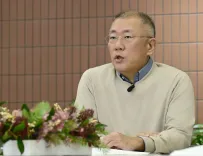What Is the Significance of RSS Legacy and PM Modi's Focus on Discipline, Nationalism, and Cultural Pride?
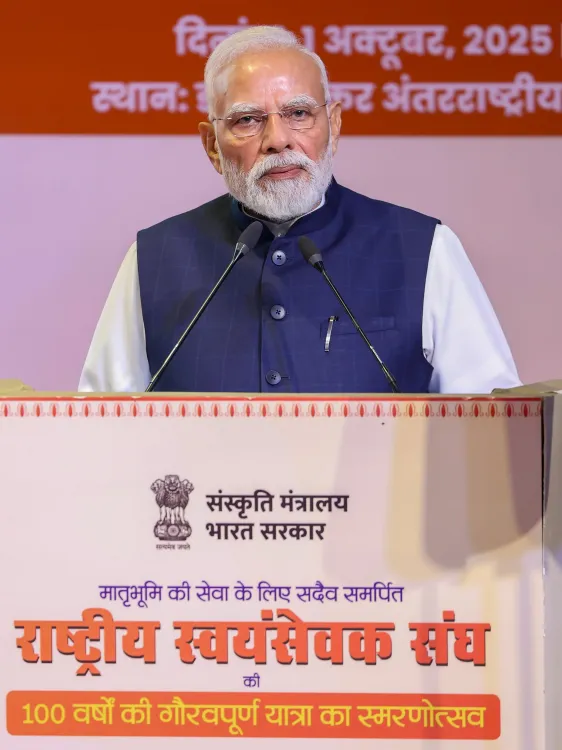
Synopsis
Key Takeaways
- Modi's connection to the RSS is a central aspect of his political identity.
- The RSS's influence on BJP policies remains significant.
- Recent electoral challenges highlight the need for strategic alignment between the BJP and RSS.
- Modi's emphasis on cultural pride resonates with his supporters.
- The centenary celebration symbolizes the RSS's enduring legacy.
New Delhi, Oct 1 (NationPress) Prime Minister Narendra Modi on Wednesday celebrated the centenary of the Rashtriya Swayamsevak Sangh (RSS), highlighting his profound connection with the organization, which he has consistently described as a “privilege” to be linked with its legacy.
In a podcast with Lex Fridman earlier this year, he reaffirmed how the RSS has given his life direction and infused in him the values of selfless service.
Modi's background with the RSS has significantly influenced his focus on discipline, nationalism, and cultural pride. Even as he made his way into mainstream politics, the influence of the Sangh remained evident in his language and policy priorities.
Despite his ideological ties and experience as a ‘pracharak’, his public appearances at RSS events have been relatively infrequent since he assumed office as Prime Minister in 2014. The responsibilities associated with his position have limited his attendance at gatherings hosted by what is regarded as the ideological backbone of the Bharatiya Janata Party (BJP).
Some observers interpreted this as a move to maintain institutional distance from the Sangh in order to uphold an image of constitutional neutrality, while others attributed it to his increasing prominence within the country’s political landscape.
During the 2024 Lok Sabha election, when the BJP lost several seats compared to the previous Parliamentary election, particularly in West Bengal and Jharkhand, critics pointed to a perceived “expanding chasm” with the RSS. Allegations of “discontent” within the party and a “rift” between old and new factions raised concerns about a political party reportedly distancing itself from the organization that provides its ideological foundation.
Notably, RSS volunteers and its affiliated groups have been active in tribal and backward regions of these states for decades. While it officially denies political involvement, the Sangh has produced numerous leaders for the BJP. Consequently, the “social work” undertaken by the organization and its affiliates has occasionally been perceived as “politically motivated”.
Thus, when the BJP experienced a decline in Lok Sabha seats in Jharkhand—from 12 in 2019 to 9—and in West Bengal from 18 to 12, some analysts attributed it to conspiracy theories. Conversely, when PM Modi celebrated 100 years of the RSS as a “very proud and glorious” journey of the “world's largest NGO” in his Independence Day speech, praising its volunteers for their dedicated service, the opposition criticized him, labeling it “shameful” and an “insult to the freedom struggle”.
Whispers of discontent also emerged from those who had previously accused him of “drifting away” from the Sangh, particularly following his first visit to the RSS headquarters in Nagpur as Prime Minister on March 30 this year.
PM Modi’s attendance at the RSS centenary celebration as the Chief Guest in New Delhi is seen as carrying significant symbolic and political weight. His commendation of the RSS's century-long legacy as an “extraordinary example of sacrifice, selfless service, nation-building, and discipline”, along with his unveiling of a Rs 100 coin and a postage stamp commemorating the event, further emphasizes this.
Interestingly, the RSS marks its foundation day annually on Vijayadashami rather than the date of its establishment.


